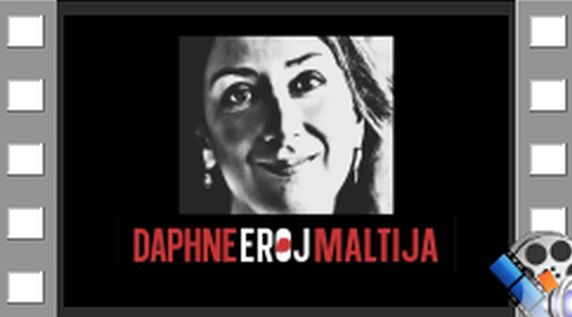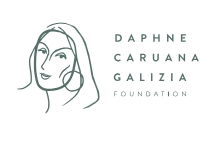Other places of interest and excursion destinations in other countries:
 |
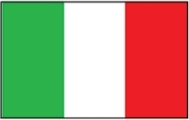 |
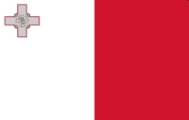 |
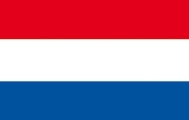 |
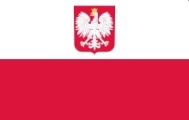 |
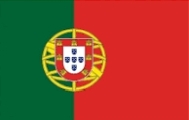 |
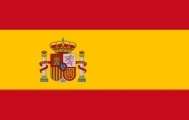 |
 |
FR |
IT |
MT |
NL |
PL |
PT |
ES |
DE |

The murder of Daphne Caruana Galizia
and what she revealed
by Lars Haagen Petersen
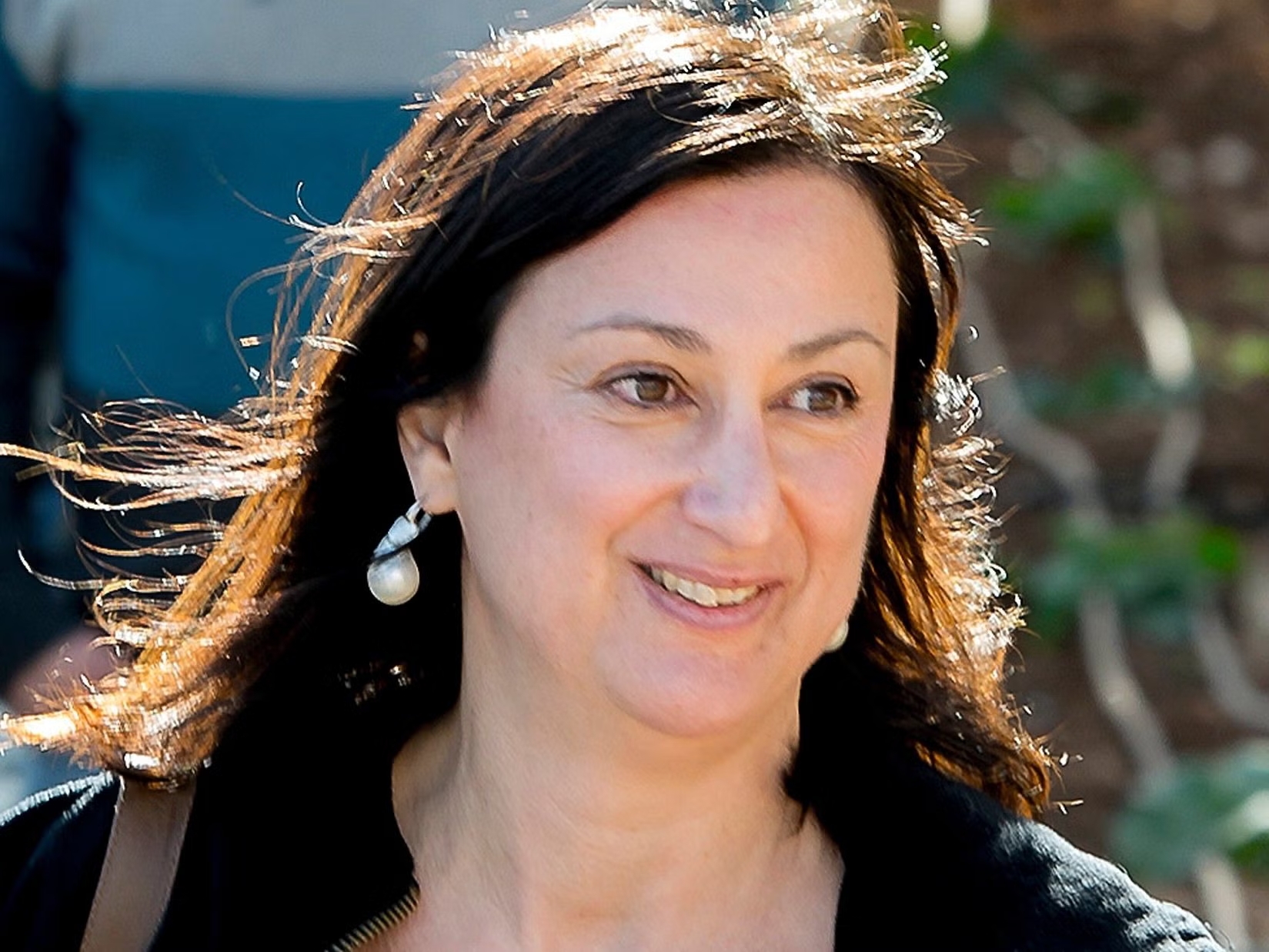
Daphne Caruana Galizia
Daphne Caruana Galizia (1964 – 2017)
On 16 October 2017, the influential Maltese journalist, Daphne Caruana Galizia, was killed by a car bomb close to her home in Bidnija approx. 3 km. from Mosta in Malta when she was on her way to the bank. The murder, in addition to anger and grief, triggered three years of political unrest, protests and unrest in Malta.
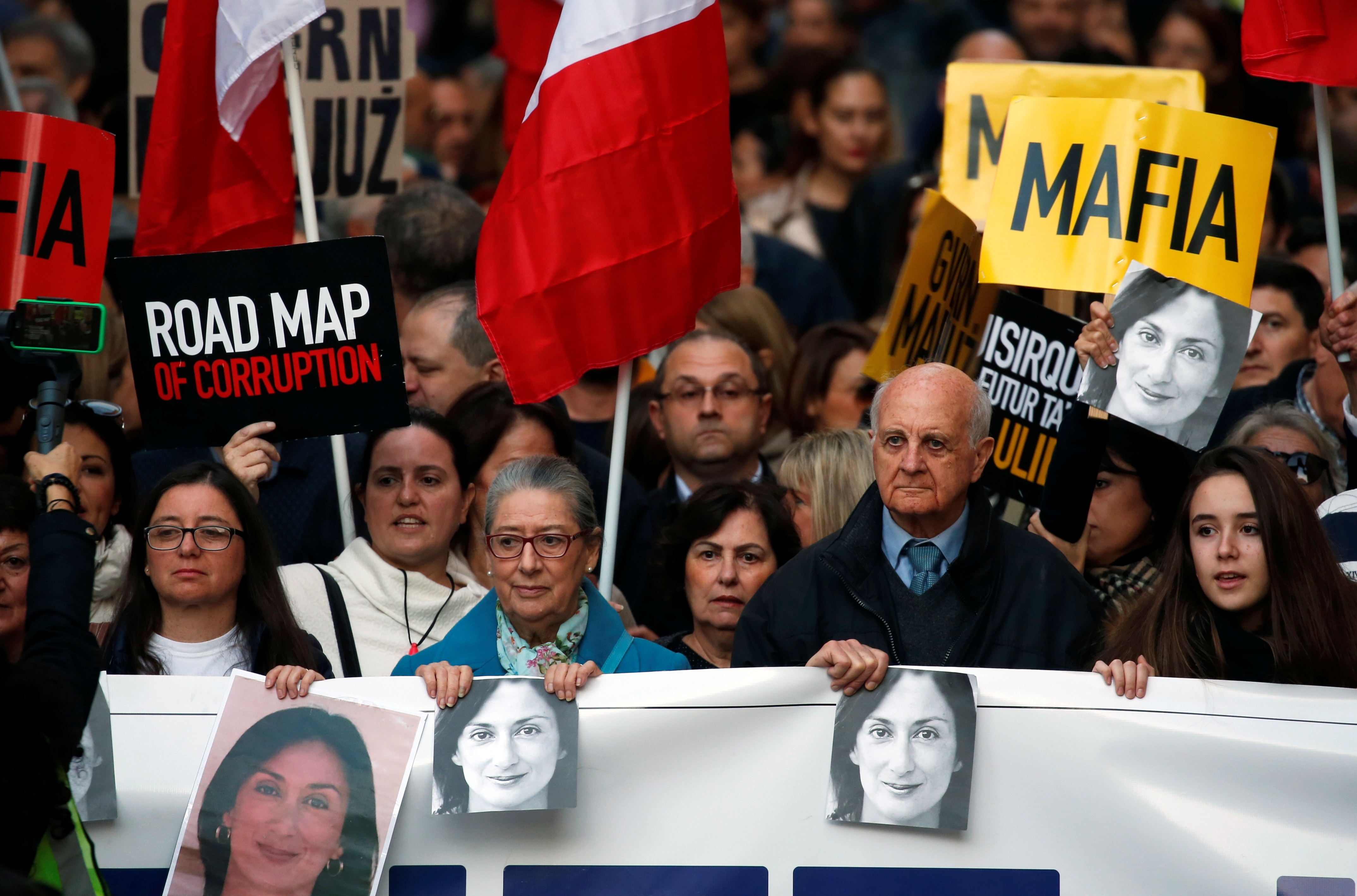
Protesters demand Prime Minister Joseph Muscat's resignation and justice
The film can be viewed by clicking on the image above
The film "Daphne was right" is an excellent documentary that pays tribute to the Maltese investigative journalist 5 years after her murder
"The documentary by Manuel Delia and Louiselle Vassallo covers some of her most prominent investigations published in 2016 and 2017 and highlights how accurate her findings were"
Producers: Repubblika, #occupyjustice, and manueldelia.com
Daphne Caruana Galizia was an internationally known journalist who, among other things, was at the forefront of the investigation of the so-called "Panama Papers" and of the corruption in the Maltese government, in the civil service and among Malta's powerful elite. Her blog 'Running Commentary' was one of the most read and influential in Malta and her journalism forced Prime Minister Joseph Muscat to step down in disgrace after it was revealed that he and his wife were mentioned in the Panama Papers*. For the same reason, she had many powerful enemies who might have had a motive to get her out of the way. According to reports, there have also been abuses in the past. Among her enemies, she was called "The Witch of Bidnija" after the village where she lived. According to reports, there had also been abuse in the past. Thus, i.a. three of the family's dogs have been killed and the family's home has been set on fire twice. One of the sons remembers i.a. how, as a 9-year-old, he found their dog lying in a pool of blood with its throat slit by the front door.
Daphne Caruana Galizia was a remarkable figure in Malta's journalistic landscape Daphne Caruana Galizia was born on 26 August 1964 in Sliema. She was the eldest of four
daughters of businessman Michael Alfred Vella and his wife Rose Marie Vella.
Daphne studied archeology and anthropology at the University of Malta as a mature student, while continuing to write a
regular column for the Sunday Times.
Daphne was Malta's first female columnist and the first to publish under her own name. She began writing a column for Malta's
Sunday Times in 1988, shortly after her youngest son was born. Her column was unusual for its time - a mix of commentary,
opinion, reportage and analysis that shed light on the darkest shadows. Her style was often satirical or humorous, which was
new in the Maltese media.
She started her blog in March 2008 when Malta was heading for elections and her first post was titled: "Zero tolerance for corruption".
The blog was where she published most of her big stories, attracting a daily readership averaging 400,000 and sometimes up to a million.
Daphne Caruana Galizia died close to her home when a car bomb detonated inside her vehicle on 16 October 2017. We cannot leave it up to questionable institutions to do
full justice to all those directly and indirectly responsible. Malta today is an
uncertain State where no one can tell where the conniving and criminal activities
end and the government begins. Pressure from the international community continues
to feel necessary.
Mark Said in Times of Malta 6 years after
Daphne Caruana Galizias death
The remains of Daphne Caruana Galizia's burned-out white rented Peugeot 108 The execution
The place where Daphne
Caruana Galizia died According to information from the trial, it was Alfred Degiorgio who was
watching over Daphne Caruana Galizia's house on the day the bomb was set off.
He contacted his brother, George Degiorgio, who was on a yacht in the Grand
Harbor in Valletta when Daphne Caruana Galizia got into her car and drove
away. George Degiorgio then sent a text message from the yacht to a mobile
device that triggered the bomb. Vincent Muscat, also known as il-Koħxu, is
the third man accused of carrying out the murder of Daphne Caruana Galizia.
He has admitted his involvement in the car bombing that killed the journalist.
Muscat's precise role in the bombing was to place the bomb that killed her
and to have stored the explosives provided by Jamie Vella and Robert Agius.
Muscat had had the explosives lying in the weeks and months leading
up to the murder. Muscat had also participated in the planning of the murder
just as he had also participated in the surveillance, where the three men
used binoculars and telescopes for days to closely observe Caruana Galizia's
movements. According to Muscat, the plan was initially to shoot Daphne Caruana
Galizia in her home, but the plan changed to using a car bomb. Yorgen Fenech,
a businessman from Malta, is accused of masterminding the murder of Daphne
Caruana Galizia. The most important witness against him is Melvin
Theuma, who allegedly secretly recorded conversations confirming the above. Investigators at Daphne Caruana Galizia's burnt-out
white Peugeot 108 The investigation The investigation into the murder of Daphne Caruana Galizia was carried
out by a number of different actors. Caruana Galizia's family requested an
independent public inquiry into her murder, which former prime minister
Joseph Muscat gave the go-ahead a few months before he resigned. Several
people have been questioned after the murder, including witnesses,
investigators, politicians and journalists. In addition, a thorough
investigation was carried out into the self-inflicted injuries of Crown
witness Melvin Theuma. Homicide Inspector Keith Arnaud, who led the
investigation into Caruana Galizia's murder, himself questioned Theuma about
his injuries. Theuma has stated that he had harmed himself out of remorse
for his participation in the murder and fear that his testimony would be
doubted. He was due to be cross-examined by the defense team the following
day. International aid In connection with the investigation into the murder of Daphne Caruana
Galizia, Malta has requested the help of international experts. Both
American, English and Dutch experts have assisted in the investigation.
Europol has also participated in the investigation together with the Maltese
police, contributing with the extraction of data from mobile phones and
computers that were seized during the investigation. A spokesman from
Europol has also stated that he considered that there was room for
improvement in relation to the cooperation with the Maltese police. The EU has also tried several times to put pressure on the investigation that has been going on
accused of being too slow and inefficient. On April 27, 1922, the European Commission presented a directive to
combat strategic lawsuits against journalists and human rights defenders
(SLAPPs) used to censor and silence public critics. Daphne Caruana Galizia
was facing 43 civil and five criminal trials at the time of her death.
The place where the car was blown up
The Daphne Project
is a cross-border investigative journalism
collaboration of major news organizations from around the world. It is
coordinated by the Paris-based investigative non-profit newsroom,
Forbidden
Stories, to continue the work of Maltese investigative journalist Daphne
Caruana Galizia.
The project was launched on April 17, 2018, and it published the first in a
series of reports by a consortium of 45 journalists from 18 news outlets to
complete Caruana Galizia’s investigative work. The journalists in The Daphne
Project work to unpack the circumstances around Caruana Galizia’s murder and
expose the corruption network in Malta that enabled it. All those who were arrested
Yorgen Fenech Yorgen Fenech: Is a Maltese businessman specializing, among other
things, in casinos and hotels in Malta. He was also head of the Tumas Group
and director of the Maltese-Azerbaijani-German company ElectroGas Malta.
Fenech was identified in 2018 as the owner of the Dubai-registered company
”17 Black”. The company was named in the Panama
Papers and Caruana Galizia had written about eight months before her death,
claiming the company had links to Joseph Muscat's chief of staff Keith
Schembri and to former energy minister Konrad Mizzi. Later, the research
group "The Daphne Project" found e-mails sent between "17 Black" and two shell companies in Panama that
either belonged to Mizzi or Schembri. These e-mails mentioned, among other
things, payments of up to $2 million for unspecified services. At the time
of Daphne Caruana Galizia's death, she was investigating a controversial
deal for a power plant in which Fenech was one of the main shareholders and
director. If convicted, Fenech would face life in prison on the murder
charge and between 20 and 30 years on the criminal conspiracy charge.
Fenech, who was arrested in 2019 as he tried to leave Malta on his yacht,
has pleaded not guilty to murder but has now been in custody for more than
three years in connection with the murder of Daphne Caruana Galizia. He has
now complained about his "prolonged detention" to the European Court of
Human Rights in an attempt to obtain release on bail and he has made 15
applications to be released from preventive detention, but all attempts have
failed. When did corruption take off in Malta? Corruption in Malta took off in 2013 when the Labor Party came to power after a 15-year absence. Within months, public assets were sold to Azerbaijan and new banks were licensed, making the island a haven for ever-increasing amounts of dirty money. In addition, many rich Maltese moved their fortunes to offshore companies in Panama and Dubai.
Malta's score on the Corruption Perceptions Index (CPI) has been deteriorating for several years, reflecting serious corruption challenges affecting the island state. With a score of 54 out of 100 on the CPI in 2023, Malta hit a historic low, well below the Western European average. A bit of Maltese corruption history Incidentally, Fenech offered himself as a witness after the apprehension,
promising information about the murder case and other offenses in exchange
for immunity. However, the request was not granted.
Melvin Theuma
Melvin Theuma a former taxi driver and lottery operator. Was stopped with an amount
equivalent to over 130.000 Euro in cash on the way on board a flight
to Istanbul. He has admitted to being the go-between in the alleged contract
killing of Daphne Caruana Galizia. Theuma has given evidence against Fenech.
He had secretly recorded various conversations between himself, Fenech
and others, and was granted a presidential pardon to cooperate with the
police and to tell all in 2019. Theuma recorded these conversations
as a form of 'insurance'. Sensing that this was going to end badly, he made
sure that if he went down, he wouldn't be alone. These recordings were later
handed over to the police following his arrest in November 2019.
Robert
Agius Robert Agius was
Adrian Agius
Adrian Agius was Accused of complicity in the murder of Daphne
Caruana Galizia. Pleaded not guilty. Also known as one of the 'Tal-Maksar'
brothers, he was also accused of participating in another murder, the
killing of a lawyer named Carmel Chircop in 2015. Carmel Chircop was a 51-year-old lawyer from Malta
who was found dead in a multi-storey garage in Birkirkara in 2015. He
was killed on the morning of October 8, 2015, as he walked to the Birkirkara garage complex, where
he died from four gunshot wounds to his upper body. The murder of Chircop remained unsolved until
Vincent Muscat received a pardon for his role in the killing in exchange for
evidence against his accomplices.
George and Alfred Degiorgio
George Degiorgio: Brother of Alfred. Was sentenced to 40 years in
prison after pleading guilty to the murder of Daphne Caruana Galizia. He was
also accused of but denied having committed the murder of Chircop.
Jamie Vella.
Jamie Vella is accused of complicity in the murder
on journalist Daphne Caruana Galizia. He and Robert Agius are also accused of having
delivered the bomb used to kill Caruana Galizia in October 2017. The two men are believed
also being part of a criminal organization. Pleaded not guilty.
Vincent Muscat Vincent Muscat, also known as il-Koħħu, is one of the three men who were
charged with planning and executing the car bomb that killed journalist
Daphne Caruana Galizia in 2017. He is the first person to have been
convicted for the murder. Muscat pleaded guilty to the crime and was
sentenced to 15 years in prison. He is believed to have acted as a hitman in
a contract to kill the journalist. He has reportedly negotiated a more
lenient sentence in exchange for providing prosecutors with information
about others involved. He has also been granted a presidential pardon to
help shed light on an entirely separate case - the murder of a lawyer,
Carmel Chircop, in 2015. And the others
Johann Cremona is a key figure in the case of the murder of Daphne Caruana
Galizia. He is a crucial link between Yorgen Fenech, the prime suspect, and
Melvin Theuma, who has become a state witness. Cremona is the director of the
gaming companies Bestplay and Oracle Gaming, which were part of Fenech’s Tumas
Group business empire. He is also a close confidant of Theuma. Secret recordings revealed that it was Cremona who informed Fenech about
Theuma’s secret tapes.
Kenneth Camilleri Kenneth Camilleri also known as Kenneth ‘From Castille’ (office of the Prime
Minister), is a former security guard for the Office of the Prime Minister (OPM)
of Malta. He has been linked to the case of the murder of journalist Daphne Caruana
Galizia. According to witness testimonies, there were at least three meetings between
state witness Melvin Theuma and Kenneth Camilleri in the aftermath of the murder.
Camilleri has also been linked to a covert €3 million bail request for the three men
charged with carrying out the murder.
Kenneth Camilleri has not been convicted. He has
been linked to the case of the murder of journalist Daphne Caruana Galizia
and has appeared in court in relation to this case. However, the prosecution
informed the court that Camilleri was not being investigated about the murder
but on events that happened after the assassination.
The police have connected 7 people with the murder of Daphne Caruana
Galizia. Grafik: Christian Busuttil/Design Studio. The verdicts So far, three verdicts have been handed down in the case
of the murder of Daphne Caruana Galizia. Resignations related to the murder of Daphne Caruana Galizia
Joseph Muscat (born 22 January 1974) is a Maltese politician and Prime
Minister from 2013 to 2020. He was the leader of the Labor Party from 2008
to 2020. He resigned from his position in January 2020. Muscat announced his
resignation in a televised address, where he said he would step down as
leader of the Labor Party on 12 January 2018 and as Prime Minister "in the
days after". His resignation came in the wake of a constitutional and
political crisis triggered by the murder of investigative journalist Daphne
Caruana Galizia. Muscat has always denied any wrongdoing and has never been
charged or convicted. He was criticized for his handling of the
investigation into the murder, particularly after it emerged that his chief
of staff, Keith Schembri, had links to Yorgen Fenech, the businessman
accused of complicity in the murder.
Keith Schembri
Konrad Mizzi
Konrad Mizzi (born 4 November 1977) is a born maltese politician and Member of
Parliament until 2022. He was Minister of Energy and Water Conservation
between 2013 and 2014, Minister of Energy and Health from 2014 to 2016, and
as a Minister within the Prime Minister's Office in April 2016. Mizzi was
re-elected on 3 June 2017 with four times the votes of the 2013 election. He
was then appointed by Prime Minister Joseph Muscat to serve as Minister of
Tourism from 9 June 2017 until his resignation in 2019. Mizzi was forced to
resign from his ministerial post due to of his connections to criminal
circles. He was later expelled from the Labor Party parliamentary group
after reports revealed the extent of his involvement in the Montenegro wind
farm scandal (involving the Maltese state energy company Enemalta, the
Dubai-based company "17 Black"**, Yorgen Fenech, and a number of Maltese
politicians), which sparked public outrage. Mizzi himself stated that he
resigned "in light of political, extraordinary and general circumstances in
the country" and stressed that he had not done anything criminal.
Despite the serious charges, Mizzi is not in prison.
Chris Cardona
Chris Cordana is former Economy Minister in Malta, and resigned from his position after being
named in court in connection with the murder of Daphne Caruana Galizia.
Cardona was mentioned several times in the trial by Melvin Theuma, who acted
as an intermediary in the murder of Caruana Galizia. Cardona was accused of
paying for the murder of Caruana Galizia through his campaign worker,
Anthony Chetcuti, known as il-Biglee, who collaborated with Alfred
Degiorgio, one of the killers. Cardona was actually also arrested and
questioned by the police, but due to lack of evidence he was released.
Cardona and lawyer David Gatt were also said to have provided €400,000 to
the killers at the start of the trial. Cardona has strongly denied all the
allegations, calling them "nonsense, based on lies". Cardona was not
appointed to the cabinet of Robert Abela, who was installed as Prime
Minister following the resignation of Joseph Muscat on 13 January 2020, and
in April 2020 Cardona resigned as an MP but retained his position as Deputy
President of the Labor Party. After the murder of Daphne, another 4 journalists within the EU have been murdered: Journalists who were subsequently murdered: Jan Kuciak: A Slovak journalist who was murdered on February 21, 2018. Viktoria Marinova: A Bulgarian journalist who was murdered on October 6, 2018. Giorgos Karaivaz: A Greek TV reporter who was shot outside his home on April 9, 2021. Peter R. de Vries: A Dutch journalist who was shot in Amsterdam on July 6, 2021 and later died of his injuries.
The names of the other murdered journalists
The makeshift memorial for Daphne Caruana Galizia in Valletta
A public inquiry into the murder of Maltese investigative
journalist Daphne Caruana Galizia was conducted by a jury of three judges in
Malta. The investigation found that the state had to bear responsibility for her
death. It concluded that the state failed to recognize the risks to her life and
take reasonable steps to avoid them. Conclusions from the public inquiry into the murder
Link to: Daphne Caruana Galizia Foundation news in english
The expected further progress in the case:
The police and prosecutor's office continue to work on the murder case as we
approach the 6th anniversary of the murder. October 16, 2023 - Jamie Vella, one of the men
accused of delivering the bomb that killed journalist Daphne Caruana Galizia, is
asking to have evidence and the judge removed from the case.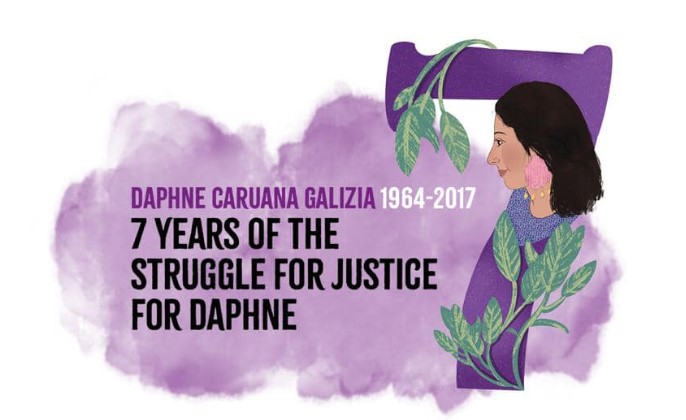
However, the assassination of Daphne Caruana Galizias is not the only one
that has happened in Malta in recent years. Thus, John Camilleri, a
well-known businessman, was killed in a car bomb explosion early in the
morning on October 31, 2016. The bomb, also placed under the driver's seat
of his car, detonated while he was driving in St. Paul's Bay. The explosion
was so powerful that it threw Camilleri's body out of the car.
Furthermore, over the years, several people in Malta have been killed and
even more injured in explosions from bombs planted outside homes, in cars
and elsewhere.
Daphne Caruana Galizia: As mentioned an investigative journalist, she
was killed in a car bomb attack near her house.
Romeo Bone: He survived a car bomb attack in February 2017 but lost
both his legs.
Victor Calleja: Known as Ic-Chippu, he died when a bomb detonated in
his car in Marsa in January 2017.
John Camilleri: Known as Giovanni tas-Sapun, he died when a bomb
under his seat detonated at St Pauls bay on 31 October 2016.
Martin Cachia: He was killed when a bomb detonated inside his car on
16 January 2016.
Over the past two decades (2003-2022), a staggering total of 1,668
journalists have been killed worldwide in the course of their work.
This gives an average of more than 80 journalists killed each year.
The number of journalists killed reached its peak in 2012 and 2013, with 144
and 142 killed respectively.
The two countries with the highest number of journalists killed are Iraq and
Syria, with a combined total of 578 killed in the last 20 years, which is
more than a third of the total worldwide.
In 2022, 86 journalists were killed worldwide. Of these, 61 were killed
outside war zones. That represents three-quarters of all killings of
journalists that year.
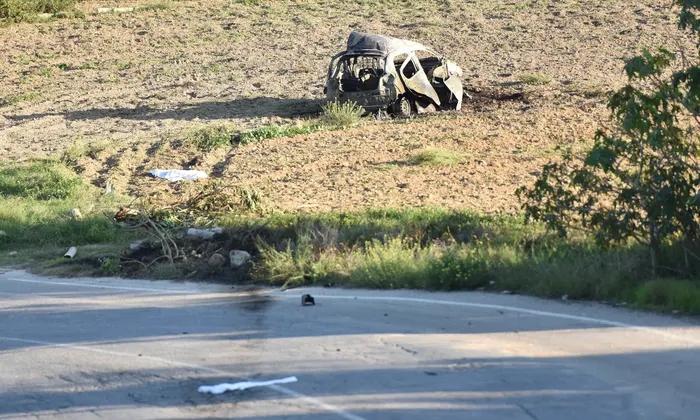
The car bomb - presumably plastic explosive of the semtex type - was placed underneath
the driver's seat of her car and triggered shortly after an observer relayed the message
that Daphne Caruana Galizia had left her home in her car. The bomb was triggered electronically from
a boat in Valletta's harbour.
On the night of October 15, 2017, the assassins noticed that Daphne Caruana
Galizia, against custom, had parked her car outside the gate of her home. They took the opportunity
to plant the bomb, which was hidden in a shoebox. 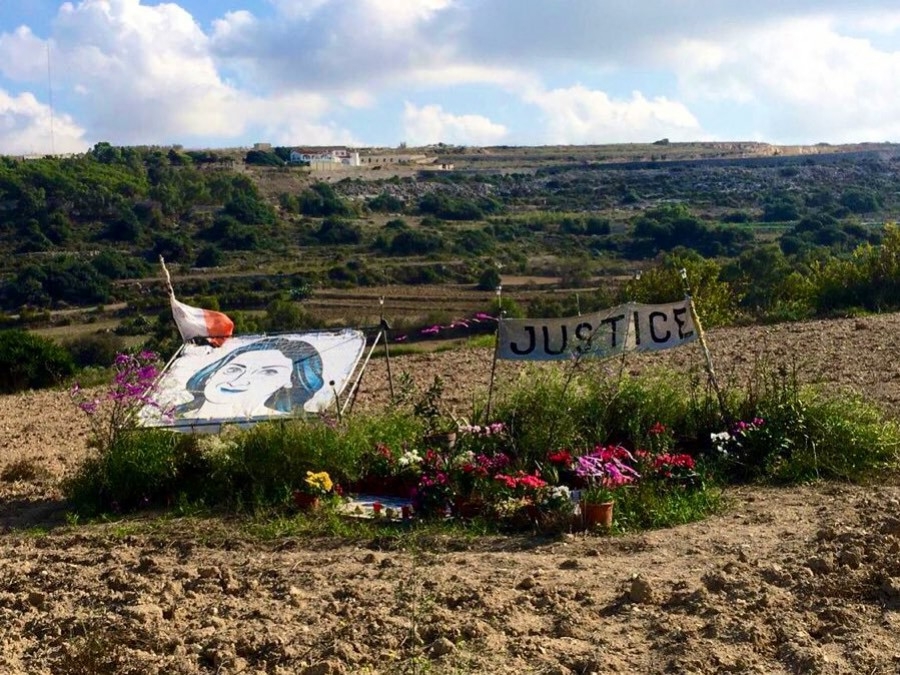
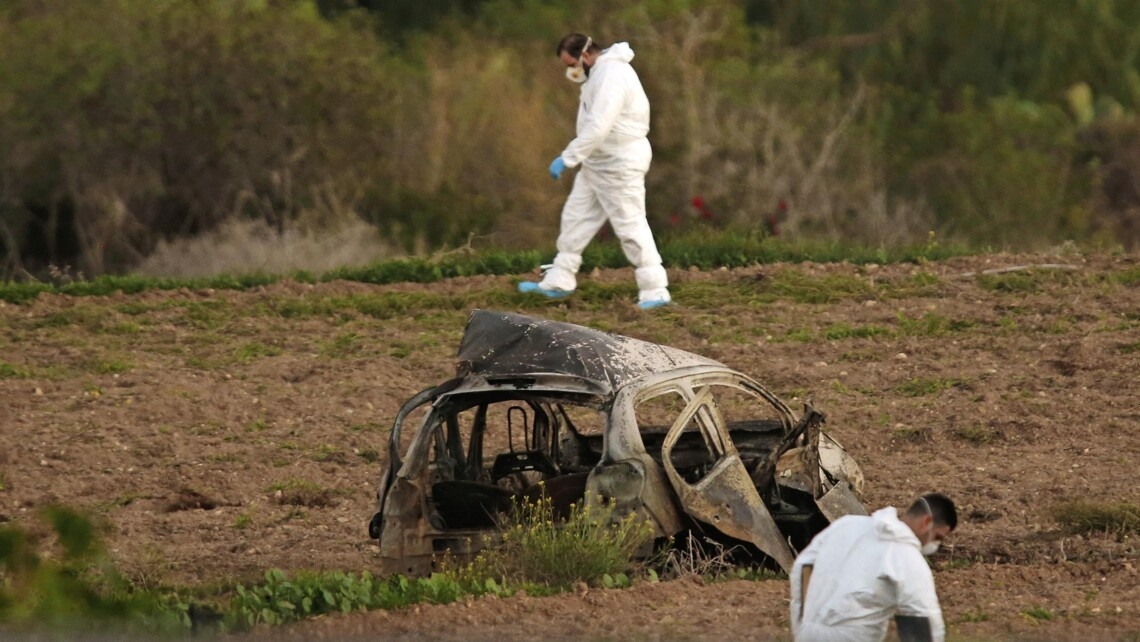
"At the same time, the Commission adopts a supplementary recommendation to
encourage Member States to also adapt their rules to the legislative
proposal as regards national cases and all types of legal proceedings, not
only in the civil area. The recommendation also calls on Member States to
take a number of other measures, among other things in education and
information, with a view to combating SLAPP."

An example of their work is an article by Laurent Richard titled “A warning
to the corrupt: if you kill a journalist, another will take their place”,
which was published in The Guardian on April 16, 2018. It was the first in
the series, and Richard’s message was to let “those who tried to stop Daphne
Caruana Galizia’s work in Malta” know that they failed.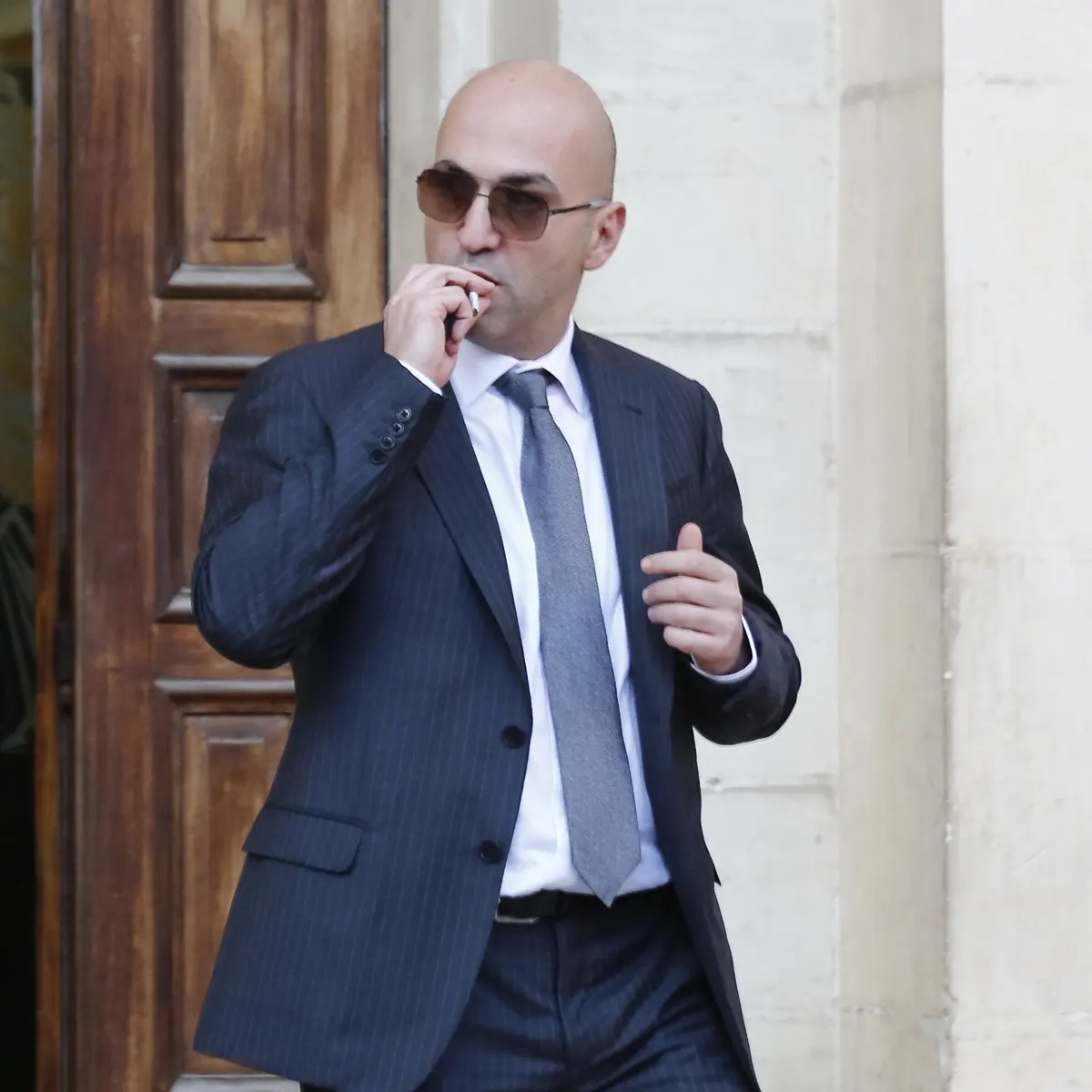
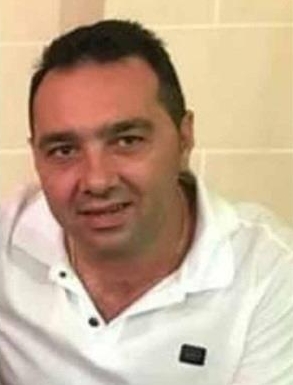
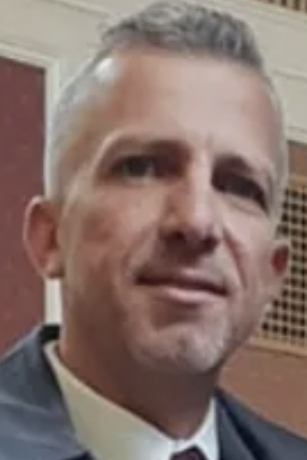
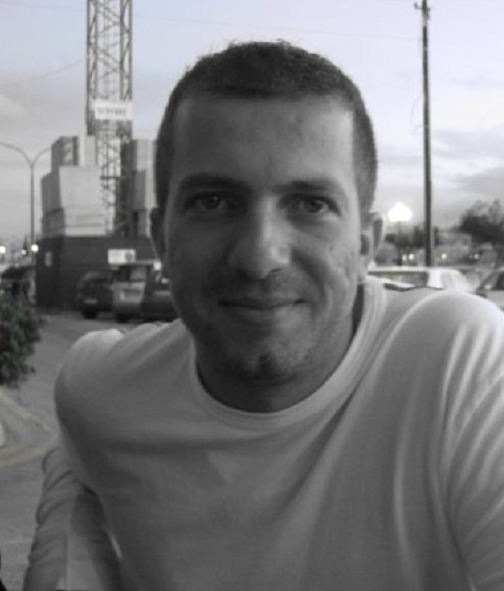
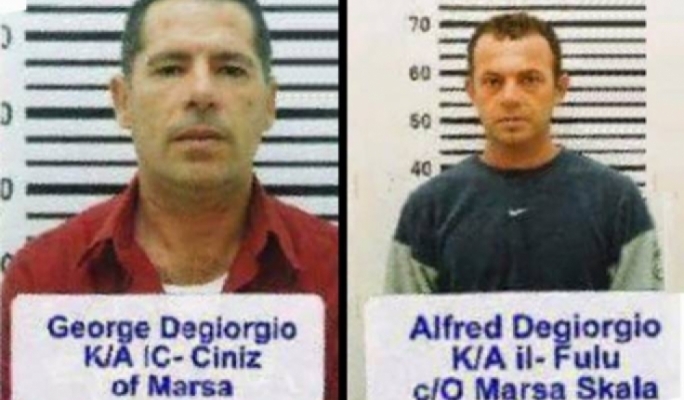
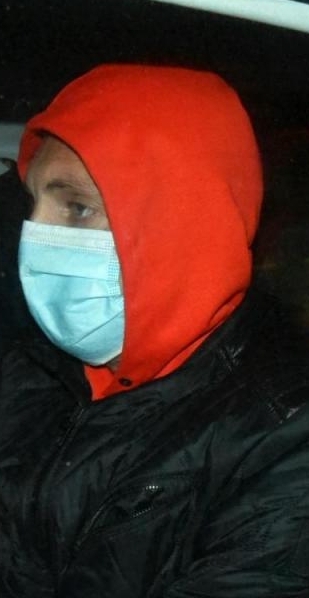
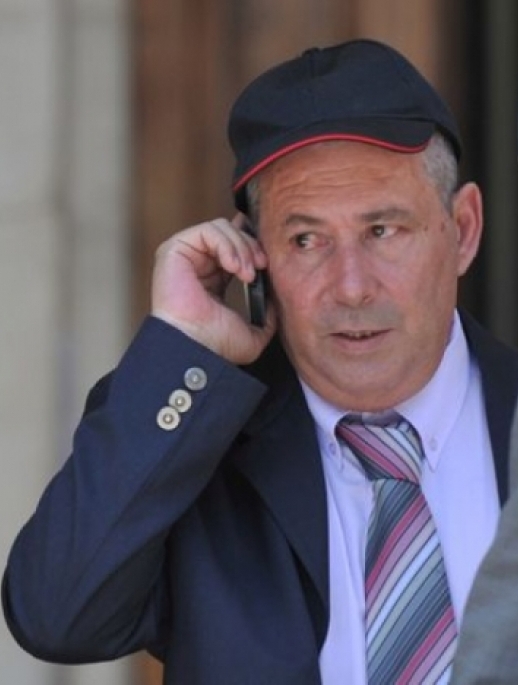
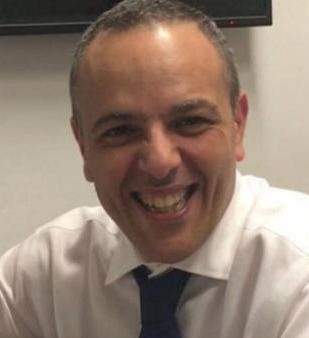 Johann Cremona
Johann Cremona
Theuma has testified that Cremona was the one who arranged the infamous
meeting with former OPM Security Guard Kenneth ‘From Castille’ Camilleri.
During this meeting, Camilleri detailed a rescue plan for the three men
charged with Caruana Galizia’s murder.
Cremona is also connected to allegations around Labour Party Deputy Party
Leader Chris Cardona. Under cross-examination from lawyer Jason Azzopardi
about an alleged murder fee of €350,000 revealed in secret recordings,
Theuma told the court that he was told that Cardona had a financial
connection to the alleged triggerman Alfred Degiorgio via an intermediary
“whose name began with ‘B’”.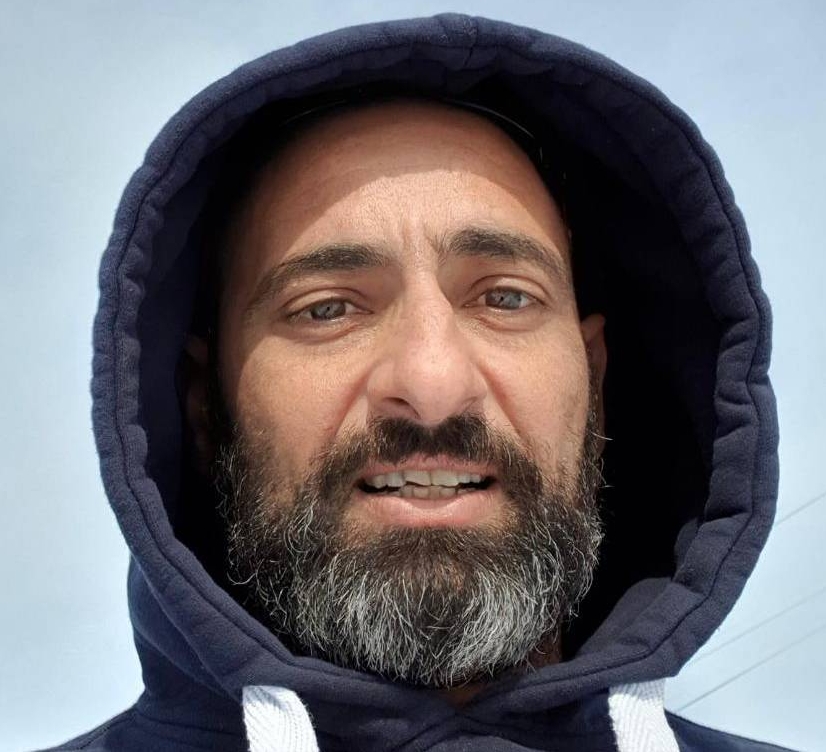
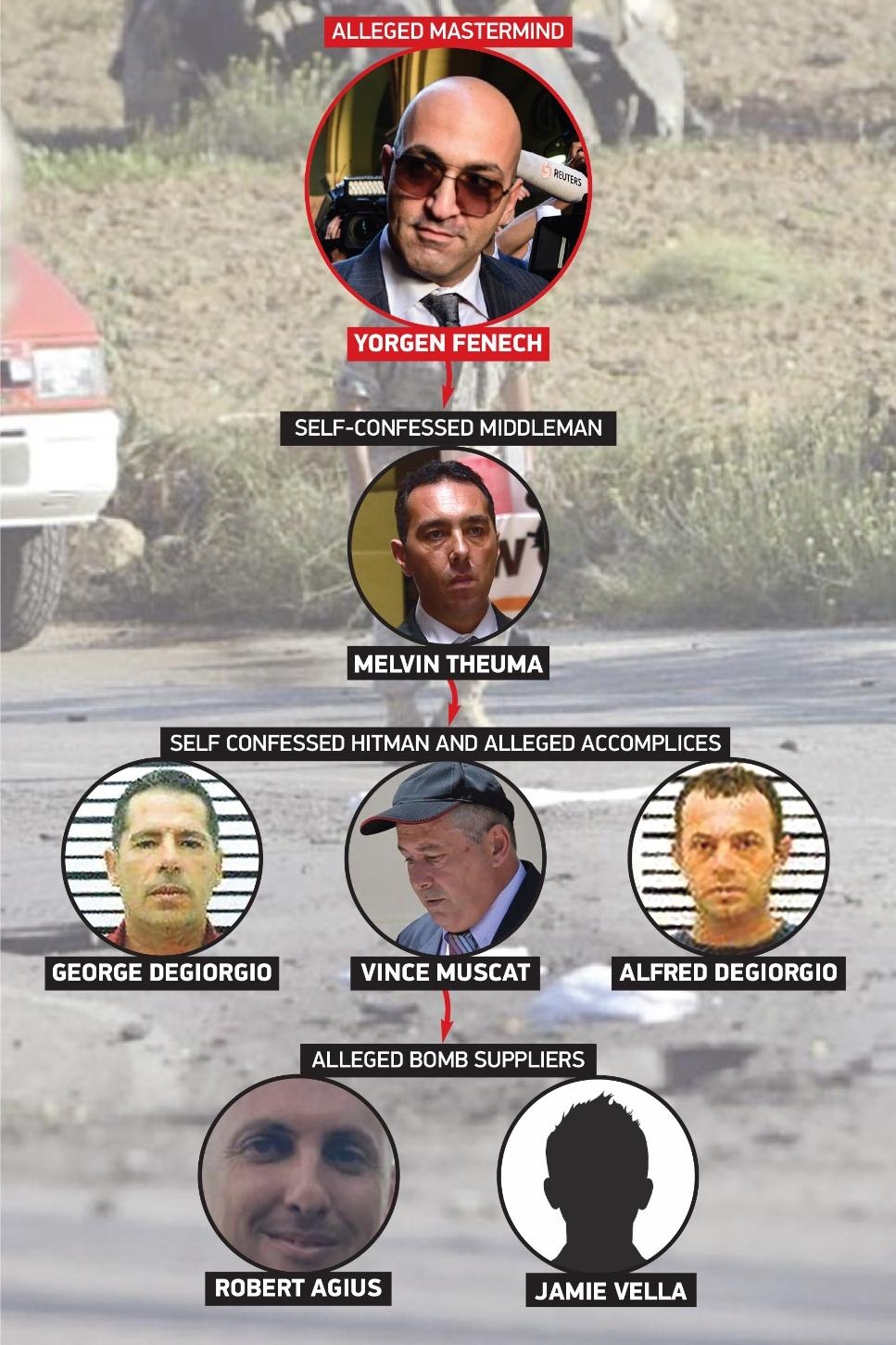
Brothers George Degiorgio, 59, Alfred Degiorgio, 57, and accomplice Vincent
Muscat, 59, were arrested in December 2017 and charged with planning and
carrying out the murder of Daphne Caruana Galizia. The 2 brothers were both
sentenced to 40 years in prison for their roles in the assassination. They
have also been ordered to pay €42,930 each in court costs and have had a
further €50,000 of their criminal proceeds confiscated. Muscat is said to have
negotiated a lighter sentence in exchange for handing over information to
the state prosecutor about the others involved. Incidentally, he has also
previously received a presidential pardon to help shed light on a completely
different case - the murder of a lawyer, Carmel Chircop in 2015.
A public inquiry into the murder of Daphne Caruana Galizia found the state
complicit in her death. The report concluded that the Maltese authorities,
whose job it was to look after her, had failed to take the threats to her
life seriously.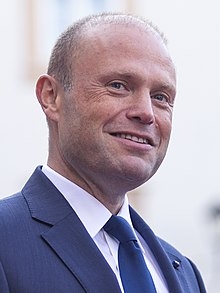 Joseph Muscat
Joseph Muscat
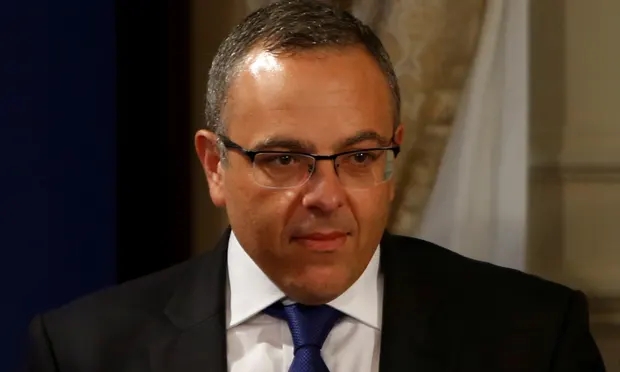
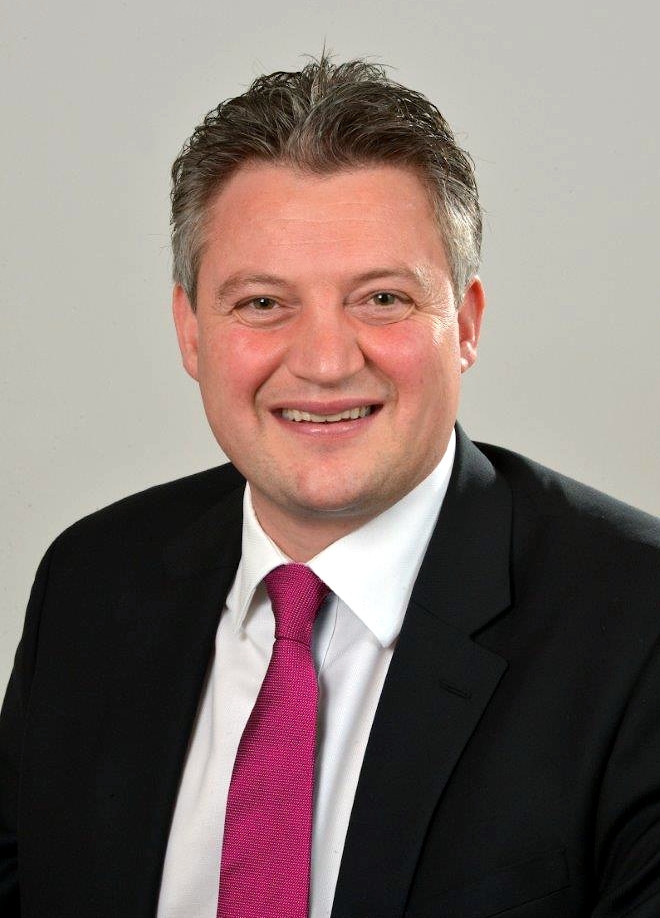
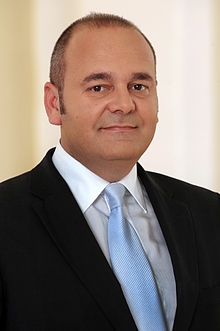
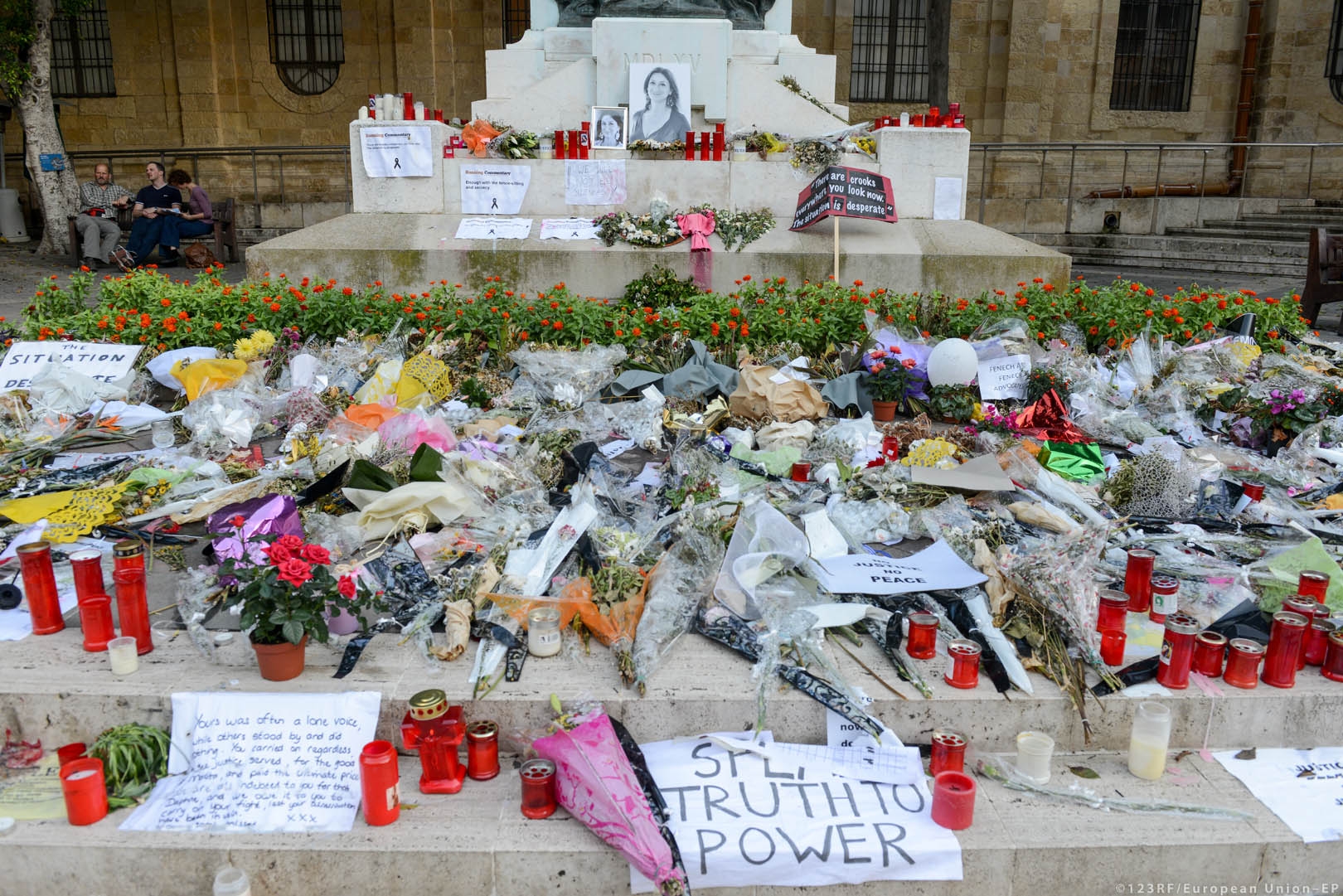
How many more can we accept? .
Malta has made progress in following up on EU recommendations. According to the
"Rule of Law Report 2023", Malta has followed up on 65% of last year's
recommendations, either fully or partially.
Charges have been brought against Robert Agius and Jamie Vella for
delivering the car bomb that killed Daphne Caruana Galizia in 2017. They are
both known to police for links to organized crime. It is not
yet known when judgments can be handed down.
The case against Yorgen Fenech, who is also charged with complicity in the
murder, is also still pending. Although the indictment was filed on August
18, 2021, it is expected to take two to four years before Fenech faces a jury. A
date has not yet been set for the trial.Fenech still pleads not guilty.
He is requesting the deletion of all CCTV footage and still images taken from
them that the prosecution plan to use in the Chircop murder case. This is
because the owners of the CCTV cameras in question have not been called to
testify in evidence, nor have they been included in the witness list at trial.
This means that the recordings and any reference to them would be circumstantial
evidence.
The request for the judge's removal is because the judge, Nadine Lia, is married
to a lawyer who is the son of Paul Lia, a lawyer who has provided services to
the Labor Party and is also Joseph Muscat's lawyer. After nearly three hours of
deliberation, Lia decided that although there was nothing in the law requiring
her to do so, in the interests of justice and the sensitivity of the case, she
would withdraw. The case must now be assigned to another judge.

